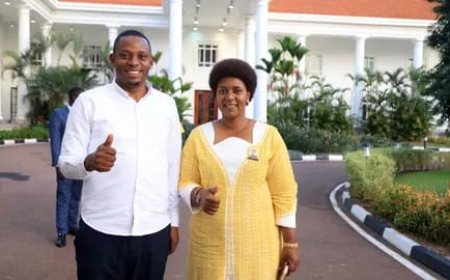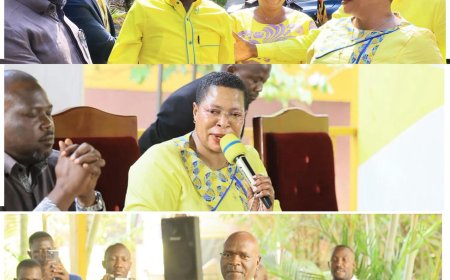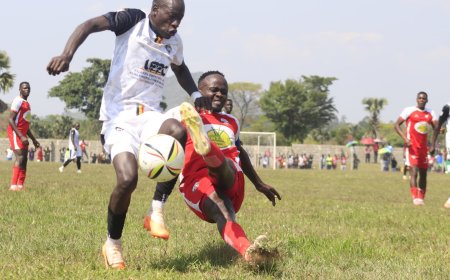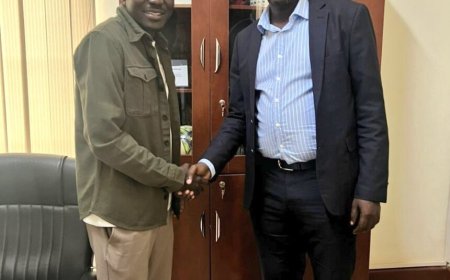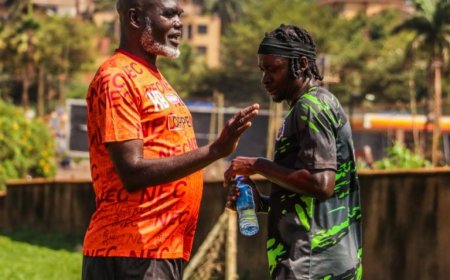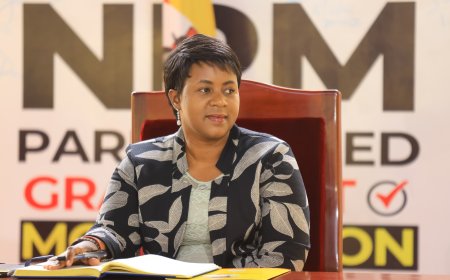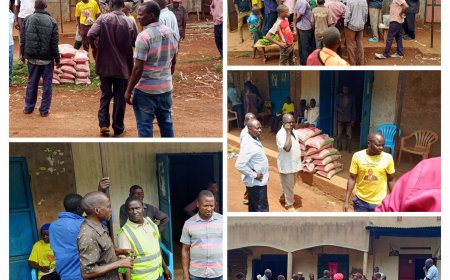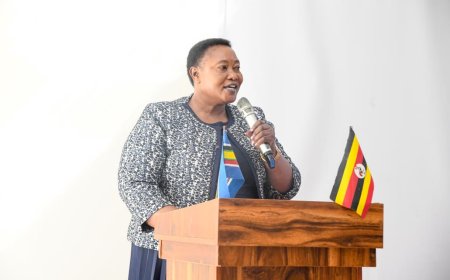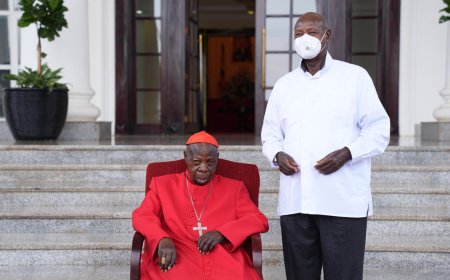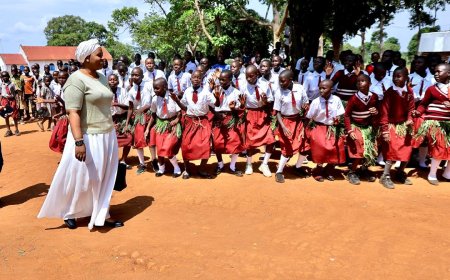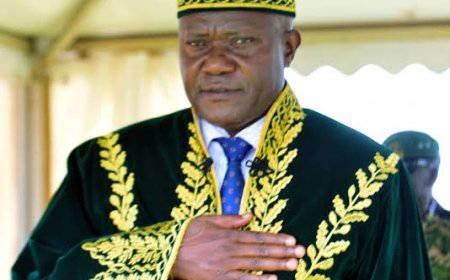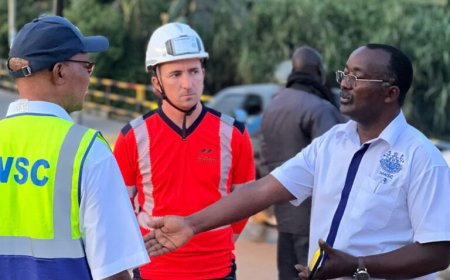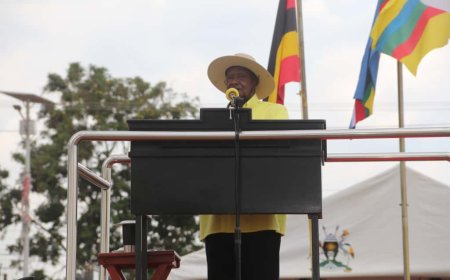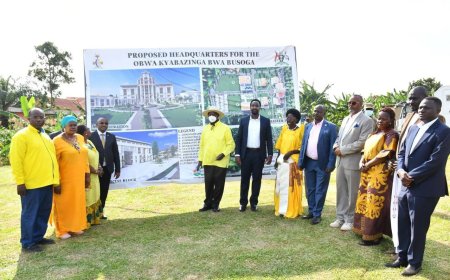INDIAN HIGH COMMISSIONER, HAJJI KAKANDE HOST RDCs TO A LUNCHEON AFTER TRAINING IN INDIA
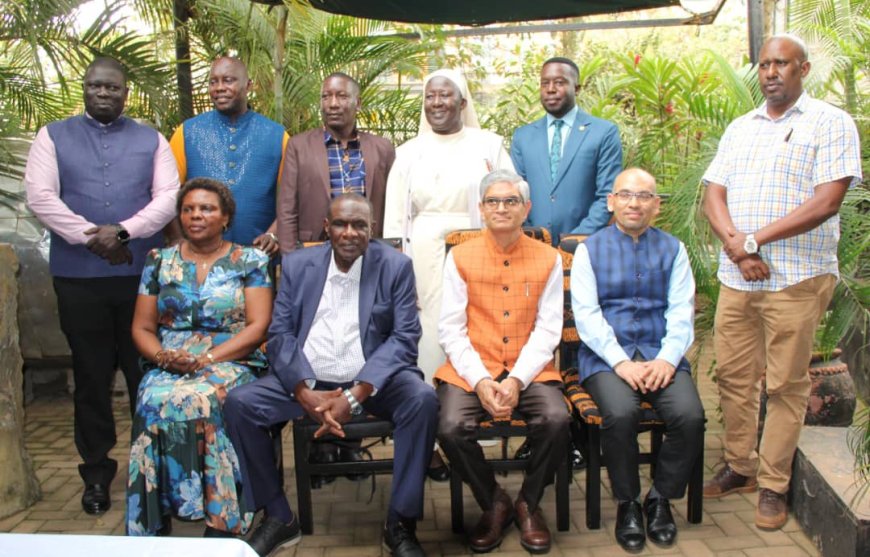
The High Commissioner of India to Uganda, H.E. Upender Singh Rawat, has hosted a delegation of 40 Resident District and City Commissioners (RDCs/RCCs), Deputy RDCs, and Assistant RDCs for a luncheon in Kampala following their return from a two week training program in India.
The delegation attended an intensive entrepreneurship and livelihood promotion course at the National Institute for Entrepreneurship and Small Business Development (NIESBUD) in Noida City, India.
The training, which concluded on October 2, 2025, focused on equipping the commissioners with practical skills to foster community transformation and economic empowerment at the grassroots level.
Speaking during the luncheon at Jikoni Restaurant, H.E. Rawat commended the participants for their commitment and expressed confidence that the training would enhance their service delivery.
“I am sure this training will help you in your work,” he remarked, reaffirming India’s continued partnership with Uganda. “This is not the end. Before the year ends, we shall extend another opportunity to more RDCs. In addition, India offers 25 scholarships annually to Ugandans.”
The Secretary, Office of the President, Hajji Yunus Kakande, expressed gratitude to the Government of India for its continued technical cooperation and capacity-building support.
“Allowing our RDCs and RCCs to gain hands-on training in entrepreneurship and community development is a gesture we deeply appreciate,” Hajji Kakande stated. “I am optimistic that this exposure will translate into improved service delivery and socio-economic transformation in our communities.”
He further urged the commissioners to implement their Back Home Action Plans (BHAPs) by aligning them with key government initiatives such as the Parish Development Model, Emyooga, and the Youth Livelihood Programme.
“Your visit to India, including cultural tours to the Dawar Leather Factory, the Prime Minister’s Museum, the Lotus Temple, and the Taj Mahal, was not only educational but also broadened your global perspective. These experiences should inspire modern leadership rooted in innovation and cultural appreciation,” he added.
To date, India has trained 60 Ugandan RDCs and RCCs under this partnership.
The Special Presidential Assistant on Diaspora Affairs, Ms. Florence Kiremerwa, applauded the collaboration and challenged the participants to apply the skills acquired for tangible results.
“I urge you to translate the knowledge gained into real impact in your districts. Those who fail to implement what they’ve learned should be reconsidered in the next term,” she emphasized. “Government has invested heavily in these opportunities; we expect measurable outcomes.”
Sr. Mary Grace Akiror, Deputy Head of the RDC Secretariat and head of the delegation, extended appreciation to both governments for the successful facilitation of the program.
“We were received with exceptional hospitality, and the program was well coordinated from start to finish,” she said. “We agreed that what we learned in India will not stay in India it will be implemented here at home.”
Several participants shared their insights from the training such as
Allan Bamuha Atwoki, Deputy RDC Kyenjojo, admired India’s efficiency in public service monitoring, noting that officials are required to track service delivery every 3–6 hours. He pledged to replicate this commitment to accountability in Uganda.
Ismail Masaba, Deputy RDC Dokolo, was impressed by India’s effective community mobilization, especially in promoting women and youth entrepreneurship through digital marketing platforms.
Nicholas Kamukama, RDC Bunyangabu, praised the industrious spirit of the Indian population and vowed to awaken similar productivity in his district.
Najib Mulema, Assistant RCC Kawempe Division, emphasized the importance of digital trade systems for improving tax collection and streamlining urban commerce.
Osborn Oceng Geoffrey, RDC Amuru, highlighted India’s thriving tourism sector, citing the Lotus Temple and Taj Mahal as examples of well-managed heritage sites. He pledged to promote Amuru’s cultural and natural attractions, including the Guruguru Hills and Amuru Hot Springs.
Donanto Kasigazi Williams, Deputy RDC Bushenyi, admired India’s strong customer service culture and entrepreneurship drive, promising to nurture similar values among communities in Bushenyi.
Catherine Kamwine, RCC Mbarara City, emphasized the importance of business planning and market research for sustainability, lessons she intends to pass on to entrepreneurs in her city.
The training program is part of the Uganda–India bilateral cooperation aimed at strengthening institutional capacity, promoting entrepreneurship, and accelerating socio-economic development at the grassroots.
As the RDCs return to their stations, they are expected to apply the skills and experiences gained to drive local enterprise growth, enhance accountability, and contribute to Uganda’s broader vision of sustainable development.
Also read:
